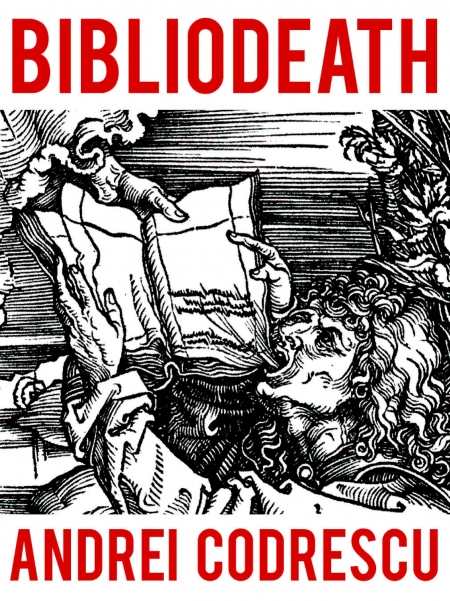Bibliodeath
My Archives
The unceasing pace of technology is creating a “bibliodeath” in which the written word is heading toward loss, some potential mourners believe. But that doomsday view ignores the evolutionary relationship between technology and language, Andrei Codrescu posits.
With a thought-provoking and highly philosophical style, Codrescu (author of numerous novels, poetry, and essays, including The Blood Countess and New Orleans, Mon Amour) attempts to encapsulate his forty-year career as a writer and commentator, and view his journey though a new lens.
“This is the story of a writer fast-tracked by the zeitgeist from the awakening of his mind in calligraphy to its maturity through a half-century of quickly morphing technologies of keyboards and memory,” he writes in Bibliodeath’s first essay. “It is intended to be a thriller.”
While he delivers on that promise, his explorations aren’t suspenseful in the conventional sense. Instead, he digs a rabbit hole for readers, leading them deeper into his sinuous thoughts, and drawing out insight along the way.
The direction of Codrescu’s musings is often unpredictable. He describes his experiences as a young bohemian poet in the 1960s, with a notebook that became his whole world. It was his first archive, full of “religion, decadence and profanity,” and when he loses it, the magnitude of the loss reaches across decades, making him cringe even fifty years later. That experience sets up a very extended and sumptuous riff on the culture of archives, texts, libraries, and literature itself. While he burrows so artfully into this material, Codrescu begins to expand his footnotes, which act as a parallel history, full of memory and random thoughts.
Much as he has in his poetry, and in his commentaries for National Public Radio, Codrescu excels at turning language into a kind of shuttlecock, bouncing words around with amazing skill. When talking about his experience writing poetry, for example, he recalls a “hypnagogic laziness” and finding inspiration in a “dense, female-shaped fog.”
The result that is Codrescu’s writing must be savored, never skimmed, and because of its inventiveness, he actually ends up using his writing style to prove his point: writing and words are evolving forms, but they also possess a fundamental solidity that can’t be destroyed, even though the lines are blurring. The border between the real and the virtual is like “a dotted line over the head of a cartoon character,” he writes, “soon to dissolve like clouds in Wordsworth’s poem.”
Reviewed by
Elizabeth Millard
Disclosure: This article is not an endorsement, but a review. The publisher of this book provided free copies of the book to have their book reviewed by a professional reviewer. No fee was paid by the publisher for this review. Foreword Reviews only recommends books that we love. Foreword Magazine, Inc. is disclosing this in accordance with the Federal Trade Commission’s 16 CFR, Part 255.


